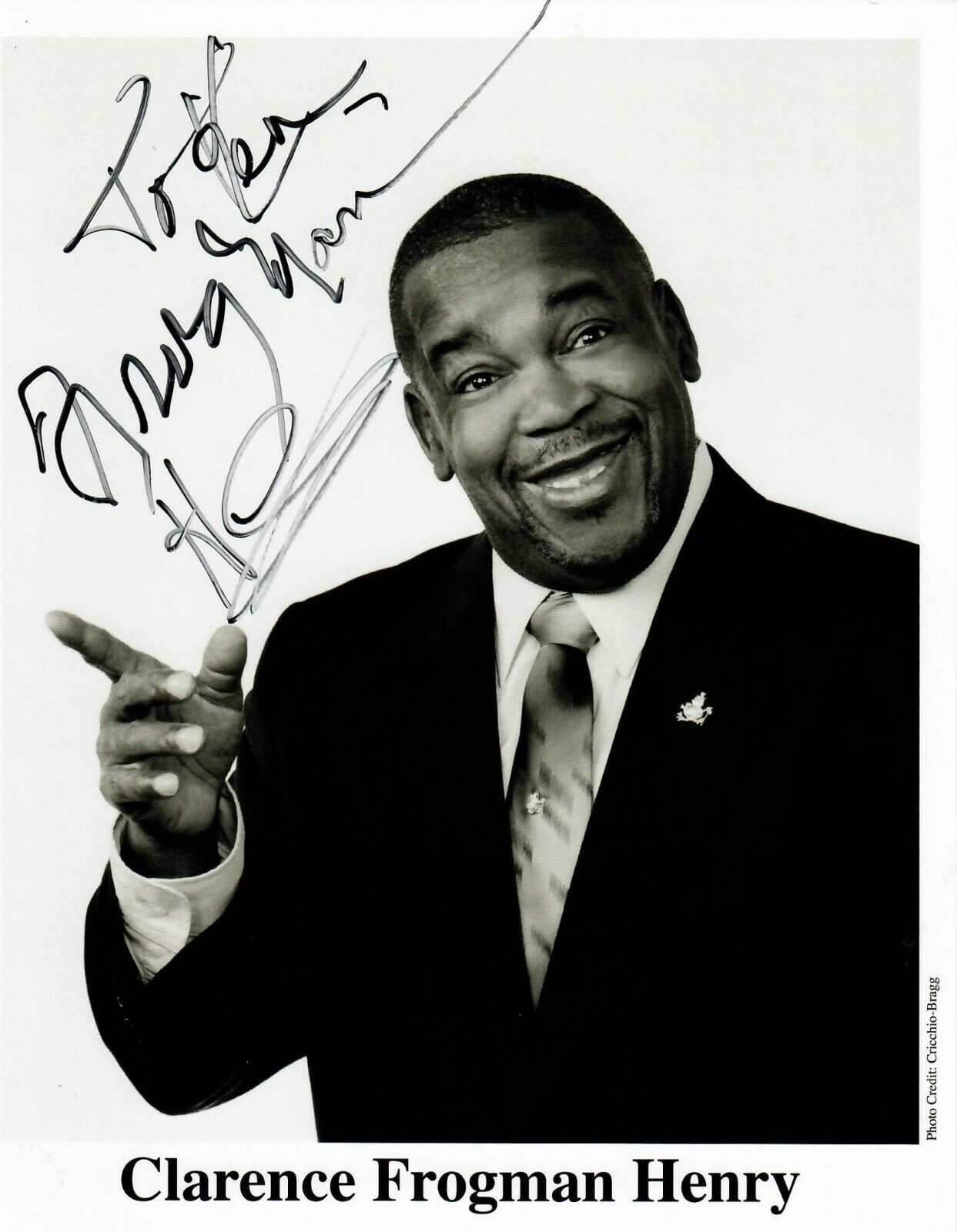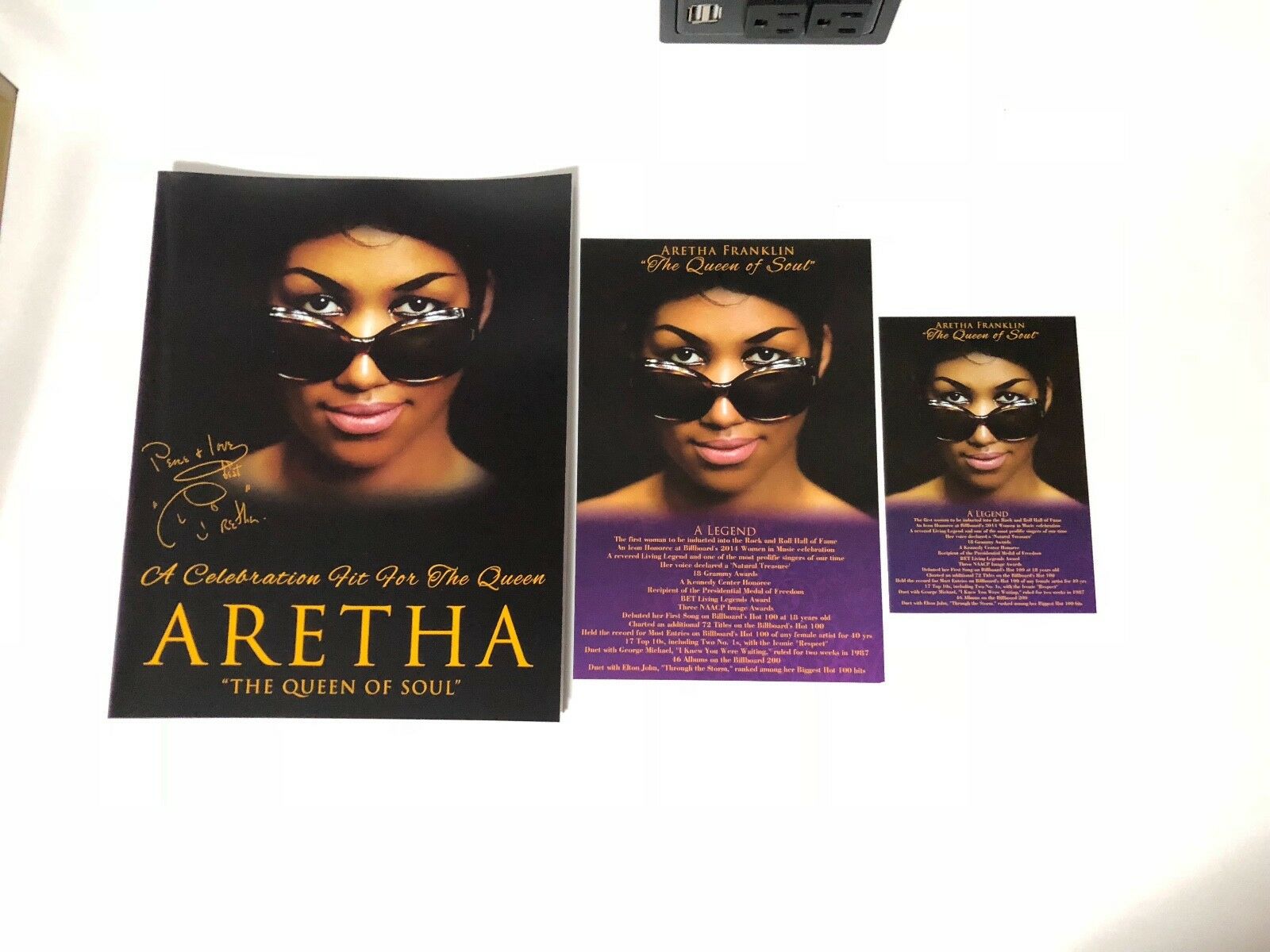-40%
"Ain't Got No Home" Clarence "Frogman" Henry Signed 8X10 B&W Photo Mueller COA
$ 26.39
- Description
- Size Guide
Description
Up for auction"Ain't Got No Home" Clarence "Frogman" Henry Signed 8X10 B&W Photo.
This item is certified authentic by
Todd Mueller Autographs
and comes with their Certificate of Authenticity.
ES-7557E
Clarence Henry II
(born March 19, 1937), known as
Clarence
"
Frogman
"
Henry
, is an American
rhythm and blues
singer and pianist, best known for his hits "
Ain't Got No Home
" (1956) and "
(I Don't Know Why) But I Do
" (1961).
Clarence Henry was born in
New Orleans
,
Louisiana
, United States, in 1937, moving to the
Algiers
neighborhood in 1948. He started learning piano as a child, with
Fats Domino
and
Professor Longhair
being his main influences. When Henry played in talent shows, he dressed like Longhair and wore a wig with braids on both sides. He joined
Bobby Mitchell & the Toppers
in 1952, playing piano and trombone, before leaving when he graduated in 1955 to join saxophonist Eddie Smith's band.
He used his trademark croak to improvise the song "
Ain't Got No Home
" one night in 1955.
Chess Records
'
A&R
man
Paul Gayten
heard the song, and had Henry record it in
Cosimo Matassa
's studio in September 1956. Initially promoted by local DJ Poppa Stoppa, the song eventually rose to number 3 on the national
R&B
chart and number 20 on the US pop chart The
gimmick
earned Henry his nickname of 'Frogman' and jump-started a career that endures to this day. He toured nationally with a six-piece band until 1958, and continued to record. A cover of
Bobby Charles
' hit "
(I Don't Know Why) But I Do
", and "
You Always Hurt the One You Love
", both from 1961, were his other big hits.Henry opened eighteen concerts for
the Beatles
across the US and Canada in 1964, but his main source of income came from the
Bourbon Street
strip in
New Orleans
, where he played for nineteen years. His name could still draw hordes of tourists long after his hit-making days had ended. He still plays at various conventions, including the
New Orleans Jazz & Heritage Festival
.










